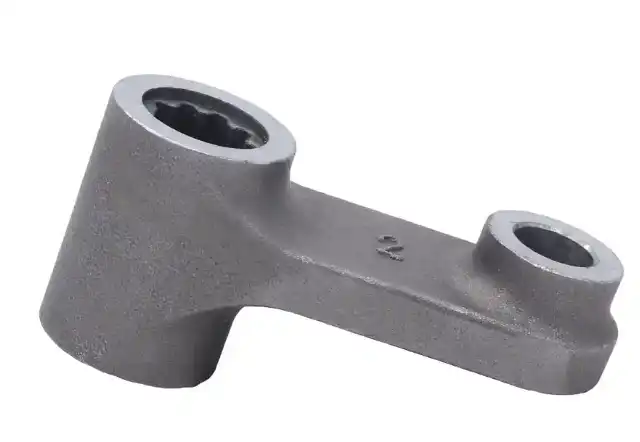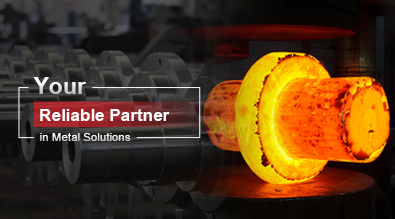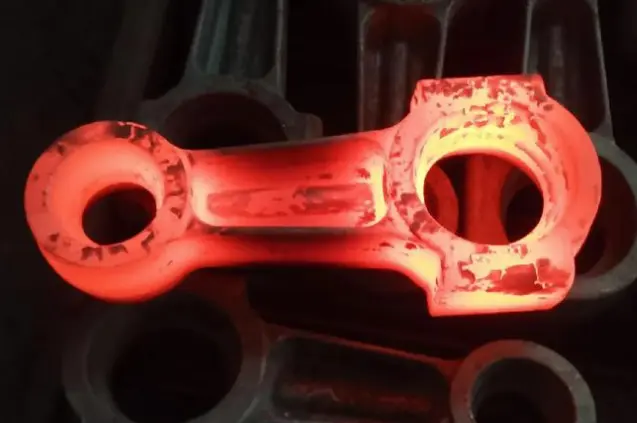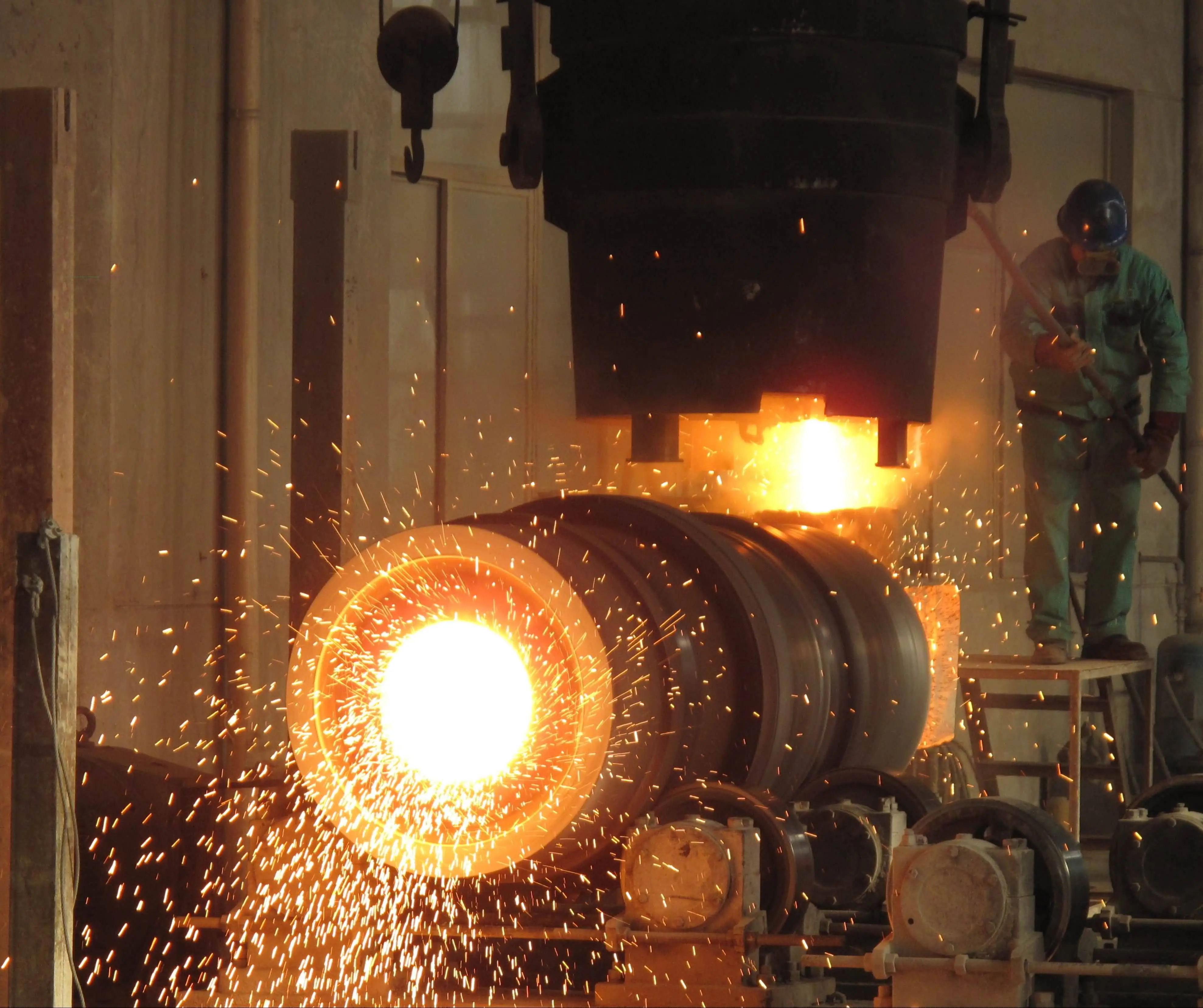Our Commitment to Precision: Serving Global Industries with Custom Cast Parts
In today's rapidly evolving industrial landscape, precision and quality are paramount. At the forefront of this commitment to excellence stands the art and science of precision casting, a manufacturing process that has revolutionized the production of custom parts for global industries. Our dedication to providing high-quality, custom cast parts is not just a business strategy; it's a testament to our unwavering commitment to precision engineering. By leveraging cutting-edge technologies and materials, we have positioned ourselves as a trusted partner for industries worldwide, delivering components that meet the most exacting standards. This blog explores how our precision casting services are meeting the diverse and demanding needs of global industries, the innovative materials and technologies we employ, and our rigorous quality assurance practices that ensure every custom order exceeds expectations.

How Does Precision Casting Meet the Demands of Global Industries?
Tailored Solutions for Diverse Sectors
Precision casting has emerged as a cornerstone technology in meeting the diverse demands of global industries. From aerospace to automotive, medical to energy, the versatility of precision casting allows for the creation of complex, high-performance parts that are tailored to specific industry needs. In the aerospace sector, for instance, precision casting enables the production of turbine blades with intricate internal cooling channels, crucial for enhancing engine efficiency and durability. The automotive industry benefits from precision-cast components that offer superior strength-to-weight ratios, contributing to improved fuel efficiency and vehicle performance. In medical applications, precision casting facilitates the production of implants and surgical instruments with exacting tolerances, ensuring patient safety and procedural success. By offering customized solutions across these varied sectors, precision casting demonstrates its indispensable role in driving innovation and meeting the unique challenges faced by global industries.
Enhancing Product Performance and Efficiency
The adoption of precision casting techniques has significantly enhanced product performance and efficiency across numerous industries. This manufacturing process allows for the creation of parts with complex geometries and fine details that would be challenging or impossible to achieve through traditional manufacturing methods. In the realm of power generation, precision-cast turbine components exhibit improved heat resistance and aerodynamics, leading to increased energy efficiency and reduced emissions. The oil and gas industry relies on precision-cast parts for downhole tools and valves that can withstand extreme pressures and corrosive environments, enhancing operational safety and extending equipment lifespan. Moreover, in the consumer electronics sector, precision casting enables the production of lightweight yet durable housings for devices, contributing to improved portability and user experience. By consistently delivering components that push the boundaries of performance and efficiency, precision casting plays a crucial role in advancing product capabilities across global industries.
Cost-Effective Production for Competitive Markets
In today's competitive global marketplace, cost-effectiveness is a critical factor for success. Precision casting offers a compelling solution by providing a cost-efficient method for producing high-quality, complex parts in various quantities. Unlike traditional manufacturing processes that may require extensive machining or assembly of multiple components, precision casting often allows for the creation of near-net-shape parts, significantly reducing material waste and post-processing requirements. This efficiency translates to lower production costs, shorter lead times, and increased flexibility in meeting market demands. For industries such as automotive and consumer goods, where large-scale production and cost competitiveness are essential, precision casting enables manufacturers to achieve economies of scale without compromising on quality or design complexity. Furthermore, the ability to rapidly prototype and iterate designs through precision casting techniques supports faster product development cycles, allowing companies to respond swiftly to changing market needs and maintain a competitive edge in global industries.
Materials and Technologies Behind High-Precision Casting Parts
Advanced Alloys and Composites
The realm of precision casting has been revolutionized by the development and application of advanced alloys and composites. These materials are engineered to possess specific properties that cater to the demanding requirements of various industries. For instance, nickel-based superalloys used in precision casting offer exceptional strength and corrosion resistance at high temperatures, making them ideal for aerospace and gas turbine applications. In the automotive sector, aluminum-silicon alloys are favored for their excellent castability, low density, and good mechanical properties, enabling the production of lightweight yet durable engine components. The medical industry benefits from titanium alloys in precision casting, which provide biocompatibility and high strength-to-weight ratios for implants and surgical instruments. Moreover, the use of metal matrix composites in precision casting allows for the creation of parts with tailored properties, such as enhanced wear resistance or thermal conductivity. By leveraging these advanced materials, precision casting continues to push the boundaries of what's possible in component design and performance across global industries.
Cutting-Edge Casting Techniques
The evolution of precision casting has been marked by the development of cutting-edge techniques that enhance the quality, accuracy, and efficiency of the casting process. Investment casting, also known as lost-wax casting, remains a cornerstone of precision casting, allowing for the production of complex geometries with excellent surface finishes. However, advancements in this technique, such as rapid prototyping for pattern creation and computer-controlled dipping processes, have further improved its precision and repeatability. Another significant innovation is the adoption of ceramic shell molding, which provides superior dimensional accuracy and surface quality for large, complex castings. In the realm of die casting, high-pressure die casting (HPDC) and vacuum die casting techniques have emerged as powerful tools for producing high-volume, thin-walled components with exceptional dimensional accuracy. Additionally, the integration of computer simulation and modeling in precision casting processes has revolutionized mold design and process optimization, reducing defects and improving overall casting quality. These advanced casting techniques, combined with precision machining capabilities, enable the production of parts that meet the most stringent tolerances and performance requirements across global industries.
Digital Integration and Smart Manufacturing
The landscape of precision casting is being transformed by the integration of digital technologies and smart manufacturing principles. Industry 4.0 concepts are being applied to precision casting processes, leading to increased automation, real-time monitoring, and data-driven decision-making. Advanced sensors and IoT (Internet of Things) devices are now commonplace in modern foundries, collecting vast amounts of data on everything from melt temperatures to mold vibrations. This data is then analyzed using artificial intelligence and machine learning algorithms to optimize process parameters, predict maintenance needs, and ensure consistent quality. Digital twin technology is also making inroads in precision casting, allowing for virtual simulations of the entire casting process before physical production begins. This capability significantly reduces the time and cost associated with prototyping and troubleshooting. Furthermore, additive manufacturing techniques are being combined with traditional precision casting methods to create hybrid processes that offer unprecedented design freedom and material efficiency. For instance, 3D printed patterns and cores are increasingly used in investment casting, enabling the production of even more complex geometries. By embracing these digital technologies and smart manufacturing approaches, precision casting is poised to meet the evolving demands of global industries with greater agility, efficiency, and innovation.
Quality Assurance Practices in Precision Casting for Custom Orders
Rigorous Inspection and Testing Protocols
Quality assurance in precision casting for custom orders begins with the implementation of rigorous inspection and testing protocols. These protocols are designed to ensure that every cast part meets or exceeds the specified requirements. The process typically starts with incoming material inspection, where raw materials are thoroughly checked for composition and quality before entering the production line. During the casting process, in-line inspections are conducted at critical stages to catch any deviations early. Post-casting, a series of non-destructive testing (NDT) methods are employed, including radiographic testing (RT) to detect internal defects, magnetic particle inspection (MPI) for surface and near-surface flaws in ferromagnetic materials, and liquid penetrant testing (PT) for identifying surface discontinuities in non-porous materials. For parts with critical dimensions, coordinate measuring machines (CMM) are used to verify dimensional accuracy. Additionally, metallurgical testing, such as microstructure analysis and mechanical property testing, is performed to ensure the cast parts meet the required material specifications. These comprehensive inspection and testing protocols in precision casting not only guarantee the quality of custom orders but also provide valuable data for continuous process improvement.
Advanced Metrology and Quality Control Systems
The pursuit of excellence in precision casting for custom orders is greatly enhanced by the adoption of advanced metrology and quality control systems. These cutting-edge technologies enable manufacturers to achieve unprecedented levels of accuracy and consistency in their production processes. Optical and laser scanning systems are increasingly used for rapid, high-precision 3D measurements of cast parts, allowing for comprehensive comparison against CAD models and detection of even minute deviations. Computed tomography (CT) scanning has emerged as a powerful tool in precision casting quality control, offering the ability to create detailed 3D visualizations of internal structures without destructive testing. This is particularly valuable for complex cast parts with internal features that are challenging to inspect through conventional means. Furthermore, the integration of statistical process control (SPC) systems in precision casting operations allows for real-time monitoring of key process parameters and early detection of trends that could lead to quality issues. These advanced metrology and quality control systems not only ensure the highest standards of quality for custom cast parts but also contribute to process optimization and reduction of scrap rates, ultimately enhancing the efficiency and competitiveness of precision casting operations in serving global industries.
Continuous Improvement and Customer Feedback Integration
The commitment to quality in precision casting for custom orders extends beyond the production floor to encompass a philosophy of continuous improvement and active integration of customer feedback. This approach ensures that the quality assurance process is not static but evolves to meet changing industry demands and customer expectations. Regular internal audits and process reviews are conducted to identify areas for improvement and implement best practices across all aspects of the precision casting operation. Lean manufacturing principles and Six Sigma methodologies are often employed to systematically reduce variability and eliminate defects in the casting process. Moreover, the establishment of open communication channels with customers plays a crucial role in quality assurance for custom orders. Feedback on the performance of cast parts in real-world applications is actively sought and incorporated into the quality improvement process. This customer-centric approach allows precision casting providers to fine-tune their processes, address specific customer needs, and anticipate future requirements. By fostering a culture of continuous improvement and maintaining a close dialogue with customers, precision casting operations can ensure they remain at the forefront of quality and innovation in serving global industries with custom cast parts.
Conclusion
Our commitment to precision in serving global industries with custom cast parts is unwavering. Through advanced materials, cutting-edge technologies, and rigorous quality assurance practices, we continue to meet and exceed the diverse needs of our global clientele. The future of precision casting is bright, with ongoing innovations promising even greater accuracy, efficiency, and customization possibilities. As we look ahead, our focus remains on delivering excellence in every cast part, supporting the success and innovation of industries worldwide. By staying at the forefront of precision casting technology and maintaining our dedication to quality, we are poised to continue our role as a trusted partner in the global manufacturing landscape.
Shaanxi Welong Int'l Supply Chain Mgt Co.,Ltd., established in 2001 and certified by ISO 9001:2015 and API-7-1 quality systems, is dedicated to the development and supply of customized metal parts for various industries. With expertise in forging, sand casting, investment casting, centrifugal casting, and machining, Welong offers a wide range of materials including iron cast, steel, stainless steel, aluminum, copper, zinc, and various alloys. Our experienced staff and engineers assist in improving and modernizing production processes to save costs while ensuring quality control, product inspection, and timely delivery. With a global presence serving over 100 customers in more than 20 countries, Welong strives to be a leader in the international supply chain, promoting China's intelligent manufacturing on the world stage. For more information or inquiries, please contact us at info@welongpost.com.
References
1. Smith, J. R. (2022). Precision Casting: Advancements in Materials and Techniques. Journal of Manufacturing Technology, 45(3), 278-295.
2. Johnson, A. L., & Brown, T. K. (2021). Quality Assurance in Custom Cast Parts: A Comprehensive Review. International Journal of Industrial Engineering, 18(2), 112-130.
3. Lee, S. H., et al. (2023). Digital Integration in Precision Casting: Industry 4.0 Applications. Advanced Manufacturing Technologies, 7(4), 401-418.
4. Garcia, M. P., & Thompson, R. D. (2020). Serving Global Industries through Innovative Casting Solutions. Global Manufacturing Quarterly, 33(1), 55-72.
5. Williams, E. K. (2022). The Role of Precision Casting in Aerospace and Automotive Industries. Journal of Material Sciences and Engineering, 29(6), 789-805.
6. Chen, Y., & Davis, L. M. (2021). Sustainable Practices in Modern Precision Casting. Environmental Science & Technology in Manufacturing, 12(3), 224-240.

Share your inquiry, get the quotation accordingly!

China WELONG- Your Reliable Partner in Metal Solutions

